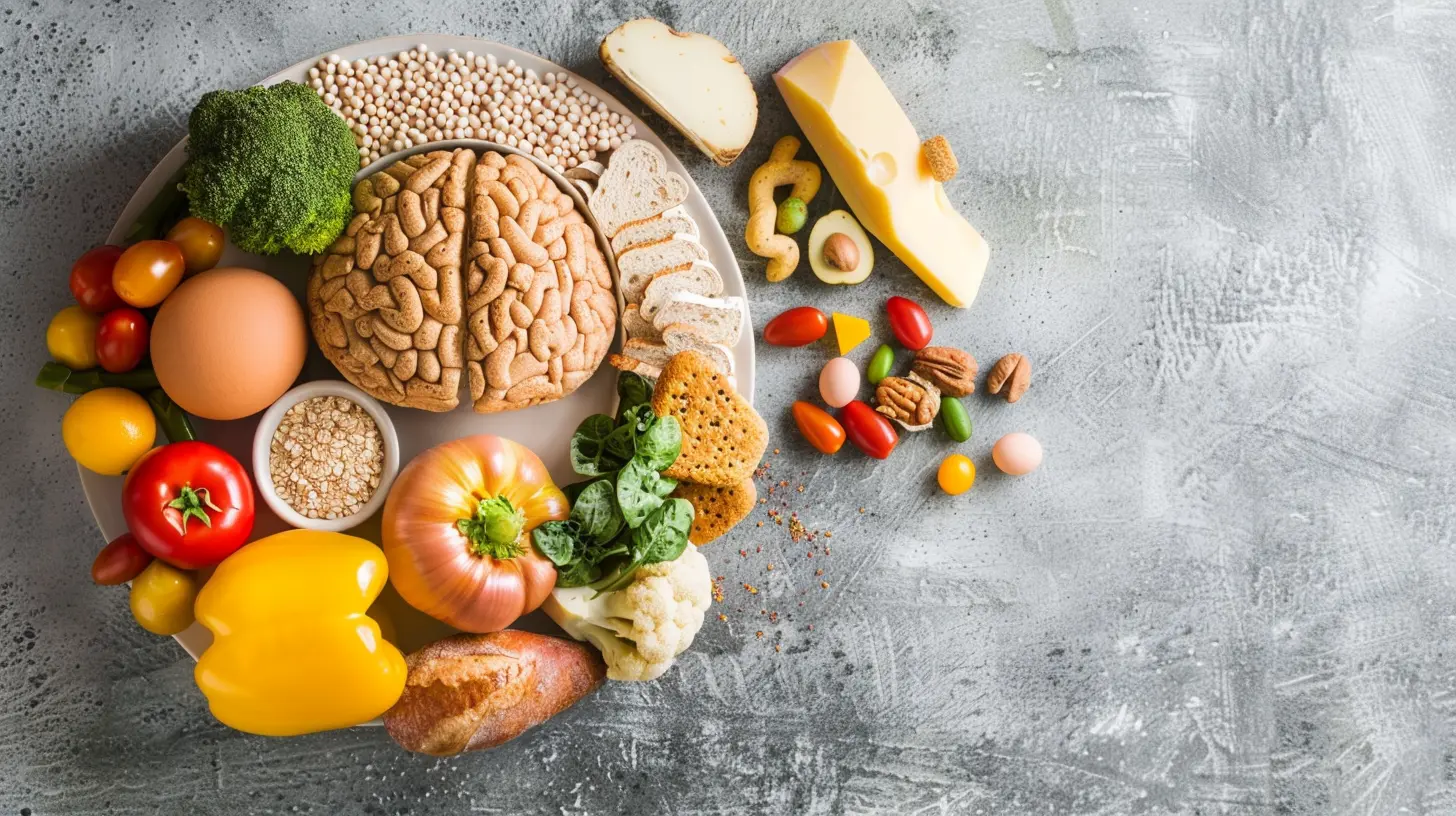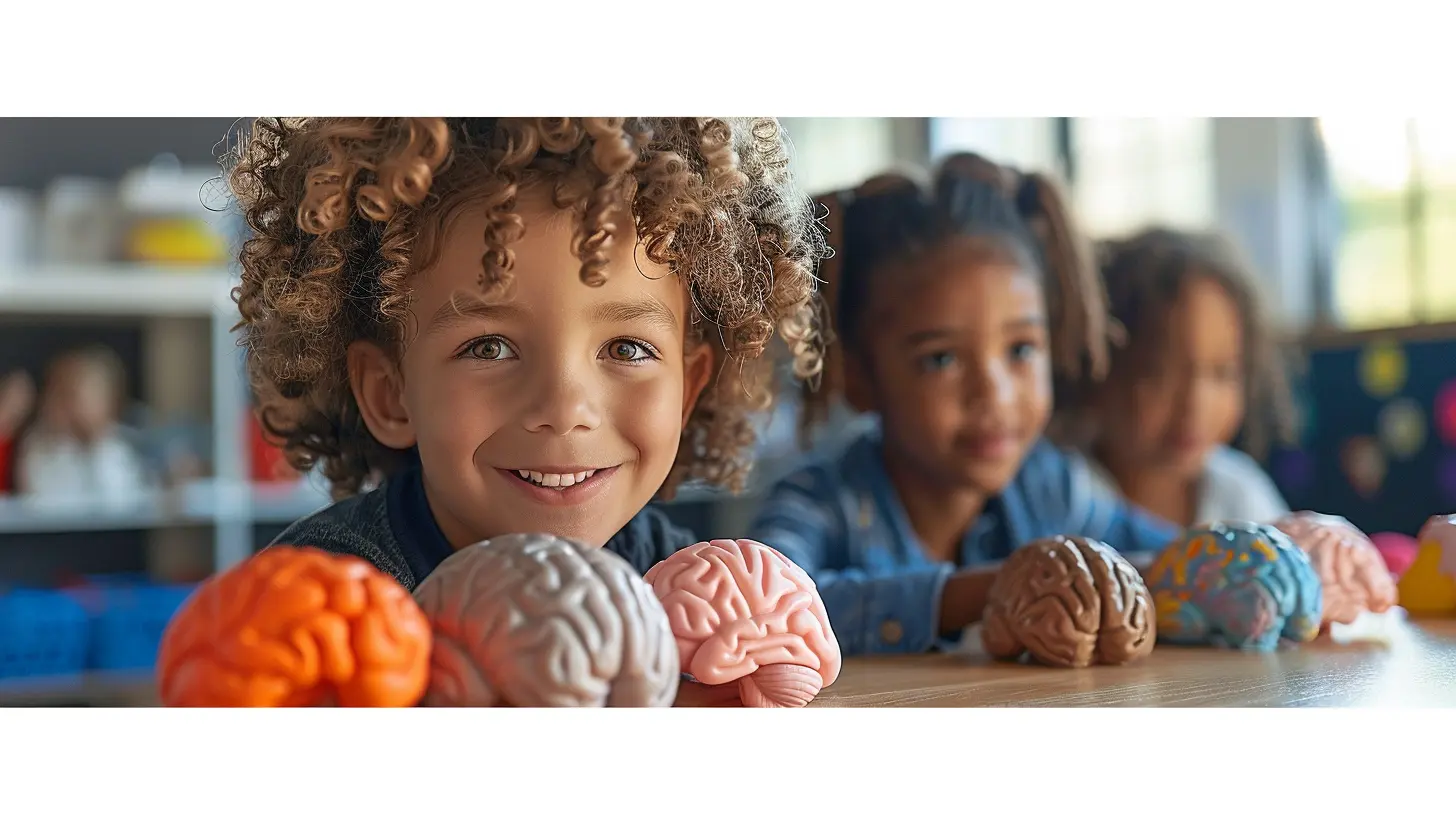The Role of Nutrition in Early Brain Development
23 October 2025
When we think about a child’s growth, we usually picture them getting taller, learning to walk, saying their first words, or maybe going to school. But there’s something happening behind the scenes that’s even more crucial: the development of their brain. And believe it or not, nutrition plays a huge role in that. What kids eat — especially during those first few years — can literally shape how their brain grows and functions for the rest of their life.
Let’s break down how this works, why it matters, and what parents, caregivers, and educators should keep in mind when it comes to feeding growing brains.
Why Nutrition Matters for the Brain (Especially Early On)
Okay, so here’s the deal: the brain develops at lightning speed during the first five years of life, with the most critical window being from conception to age two. During this phase, billions of neurons are forming connections faster than you’d believe—around 700 to 1,000 new neural connections every second.Now, imagine trying to build a complex machine without the right parts. That’s what it’s like when the brain doesn't get the nutrients it needs. Early nutrition provides the “building blocks” for brain tissue, neurotransmitters, myelin (that fatty layer that insulates nerve pathways), and synaptic connections.
Without proper fuel, this incredible growth just can’t happen the way it should.
Key Stages of Brain Development & Nutritional Needs
Let’s look at the brain's growth journey and how nutrition plays a role at each step.Prenatal Phase (Before Birth)
Brain development doesn’t wait until birth—it starts long before that. In fact, the foundations are laid during the second and third trimester of pregnancy.Nutritional Needs:
- Folic Acid: This B-vitamin is essential during the early stages of fetal brain and spinal cord development. A deficiency increases the risk of neural tube defects.
- Iron: Required for producing red blood cells and transporting oxygen—both key to brain development.
- DHA (an omega-3 fatty acid): Critical for building the brain's structure and promoting cognitive functions.
Infancy (0–12 Months)
This is when rapid brain growth kicks into full gear, especially from birth to six months.Nutritional Needs:
- Breast milk: The gold standard. It’s packed with essential fats, proteins, and antibodies.
- DHA & ARA: Help develop the cerebral cortex (the part of the brain responsible for thought, memory, and language).
- Choline: Supports memory development and brain cell communication.
- Zinc: Essential for brain structure and function.
Toddlerhood (1–3 Years)
The toddler stage is all about learning, communicating, and moving. Brain plasticity (the brain's ability to change and grow) is at an all-time high.Nutritional Needs:
- Iron: Still a big deal here. Iron deficiency can lead to long-term cognitive and behavioral delays.
- Protein: Helps produce neurotransmitters and supports neuron growth.
- Vitamin D: Supports brain development and mood regulation.
- B Vitamins: Help with energy metabolism and neuron function.
The Heavy Hitters: Key Nutrients for Brain Development
Let’s zero in on a few superstar nutrients that carry the most weight in brain development.1. Iron
Iron is like the delivery truck that brings oxygen to the brain. Without enough iron, brain cells can’t function properly. In fact, iron deficiency is one of the most common nutrient deficiencies worldwide — and its effects on learning and behavior can be long-lasting.Low iron in early childhood has been linked to:
- Reduced attention span
- Poor academic achievement
- Delays in cognitive and motor development
2. Omega-3 Fatty Acids (Especially DHA)
Have you ever heard that the brain is made of fat? It’s true — about 60% of it, in fact. One of the most important fats is DHA, a type of omega-3 fatty acid. Think of DHA as the wiring insulation that helps brain signals travel smoothly.Kids with higher DHA levels tend to have:
- Better verbal ability
- Improved memory
- Faster cognitive processing
Sources? Fatty fish like salmon, fortified eggs, and breast milk (or DHA-fortified baby formulas).
3. Choline
Choline hasn’t gotten as much press as other nutrients, but it should. It’s vital for producing acetylcholine, a neurotransmitter involved in memory and learning.Eggs, liver, peanuts, and lean meats are all great sources of choline — and getting enough during pregnancy and early childhood massively boosts memory functions.
4. Zinc
Zinc is like a tuning knob for brain signals. It supports brain structure and helps neurotransmitters communicate efficiently.Zinc deficiency in young children is associated with trouble concentrating, poor memory, and slower cognitive development.
5. Iodine
Here’s one you probably didn’t expect. Iodine is essential for making thyroid hormones, which guide brain development during pregnancy and infancy. A severe deficiency can lead to mental disabilities and developmental delays.Sources include iodized salt, dairy products, and seafood.
The Gut-Brain Connection (Yep, It’s Real)
Ever get a “gut feeling” about something? That’s not just a saying — the gut and the brain are deeply connected. In fact, scientists often call the gut the “second brain.” The trillions of microbes in your digestive system play a huge role in brain function, mood, and even behavior.This is why foods that support gut health — like fiber-rich fruits and veggies, yogurt with live cultures, and fermented foods — are so important for kids. A healthy gut helps reduce inflammation and may improve learning and memory.
What Happens When Kids Don’t Get Enough?
Here’s where things get serious. Nutritional deficiencies during early development can lead to long-term consequences. We're talking about:- Attention and behavioral problems
- Poor academic performance
- Reduced cognitive abilities
- Slower language development
And some of these effects aren’t reversible later in life, even with dietary improvements. That’s why prevention is key.
Practical Tips for Feeding Young Brains
So now that we know what nutrients matter, how do we actually make sure kids get what they need? Here are some practical, real-life tips:1. Prioritize Variety
No single food contains all the brain-boosting nutrients, so variety is huge. Encourage:- Whole grains
- Lean proteins
- Colorful fruits and veggies
- Healthy fats
2. Don’t Skip Meals
Young brains need a steady stream of energy. Skipping meals or relying on sugary snacks can lead to dips in focus and behavior.3. Embrace Healthy Fats
Not all fats are bad! Healthy fats — like avocado, nuts, seeds, and olive oil — are essential for brain development.4. Limit Junk Food
Highly processed foods, excess sugar, and trans fats can actually hurt brain function. Keep these to a minimum during those critical years.5. Pay Attention to Iron
This one deserves repeating. Make sure kids are getting enough iron-rich foods like red meat, spinach, lentils, and iron-fortified cereals.How Educators and Schools Can Help
Teachers and schools play a massive role in shaping children’s health. Here’s how they can support nutritional brain development:- Provide balanced, nutrient-rich meals and snacks at school.
- Educate students (and parents!) about healthy food choices.
- Encourage breakfast programs—kids who eat breakfast tend to perform better academically.
- Offer nutrition education as part of the curriculum.
Final Thoughts
Let’s face it: raising and educating kids is no small task. There are thousands of decisions to make – from what toys to buy to how to encourage reading. But if there’s one area that can’t be overlooked, it’s nutrition.Food isn’t just fuel. It’s what powers a child’s learning, memory, focus, and emotional health. What we feed our children today literally builds the brain they’ll use tomorrow.
So whether you're a parent preparing your baby’s first meal, a teacher managing lunchtime at school, or just someone who cares about the next generation — remember this: every bite counts.
all images in this post were generated using AI tools
Category:
Early Childhood EducationAuthor:

Madeleine Newton
Discussion
rate this article
1 comments
Zinn Hubbard
This article highlights the crucial impact of nutrition on early brain development, emphasizing that a well-balanced diet not only supports cognitive growth but also lays the foundation for lifelong health and learning potential.
October 23, 2025 at 2:43 AM

Madeleine Newton
Thank you for your thoughtful comment! I'm glad you found the article highlights the importance of nutrition in shaping cognitive development and lifelong health.


